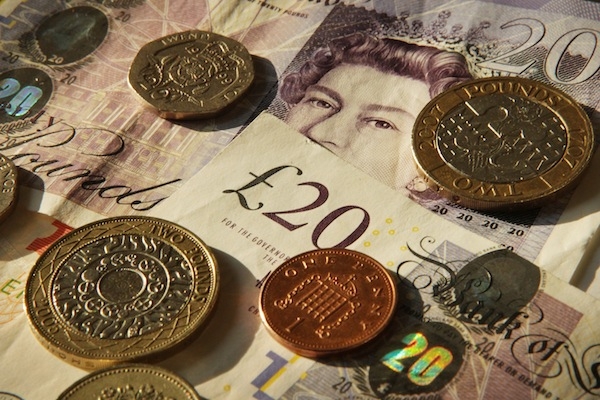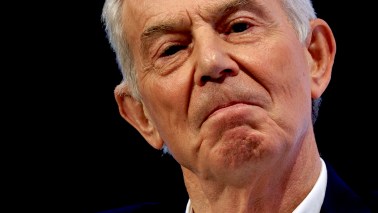In other pensions news, the Daily Mail reports that thousands of savers with old pension plans have had their retirement hopes dashed by a double whammy of crashing returns and the worst payout rates in history.
A Money Mail investigation has found savers who were sold with-profit policies in the 90s will receive just an eighth of what they were led to expect. Today’s retirees will have to put up with a pension of just £3,774 a year after 20 years of saving £200 a month.
When they took out the policy, they were told they could expect nearer £29,000. That means their pensions will be an astonishing 87 per cent smaller than insurance salesmen estimated two decades ago.
Brexit
The Bank of England governor has said it is ‘important’ that he and Chancellor George Osborne are allowed to have private meetings. However, Mark Carney has agreed minutes of their private talks on Brexit may be examined ‘discreetly’ by MPs.
It was his first time giving evidence to MPs since the vote. He denied again that the Bank of England had tried to ‘frighten’ the public about the negative effect a Brexit vote could have on the economy. Richard Sharp, an external member of the Financial Policy Committee, which is in charge of maintaining financial stability, said the huge amount of foreign cash that had been pumped into UK commercial property had created a ‘phenomenally’ overheated market. Speaking at the same hearing, Sharp warned that buy-to-let lending was also likely to cool significantly in the wake of the Brexit vote as banks assessed the impact on house prices. Referring to the surge in buy-to-let lending ahead of a 3 per cent stamp duty surcharge on second homes in April, Sharp said: ‘I suspect the banks will want to see what regime we’re in in terms of house prices before they go back to aggressive lending.’ Meanwhile, The Times reports that Carney may have bounced the Bank of England into an unnecessary interest rate cut by calling for stimulus only days after the Brexit result. Senior economists said that Carney’s personal assertion on June 30 that ‘policy easing will likely be required over the summer’ had put his colleagues on the monetary policy committee in an impossible position, given the uncertainty since the referendum. Cold-calling More than half of adults in Britain receive unsolicited phone calls offering high-risk financial products and around one in eight are being called every single day, according to new research from StepChange Debt Charity. The charity wants to see action from the Financial Conduct Authority and Her Majesty’s Treasury to ban unsolicited phone calls promoting high-risk financial products, which are harmful, widespread and can make people’s debt problems much worse. The research also suggests that these calls, which offer products like high cost credit (e.g. payday loans) and fee-charging debt management services, have resulted in 1.5 million people taking out one of those two products. Tax billsCouples taking up the new marriage tax break face bills for hundreds of pounds in unowed tax, according to the Daily Mail.
The marriage Tax Allowance lets those earning less than £11,000 pass £1,100 of their unused personal allowance to their spouse. Couples can save as much as £220 a year, but the allowance has been beset with difficulties since it was launched by George Osborne last year.
In the latest blunder, uncovered by Money Mail, people who have received their partner’s allowance have found the tax break is not registered to their name and does not show on online self-assessment forms. Some fear they are being charged £212 too much as a consequence.
Housing
Yorkshire Building Society, the UK’s second largest building society, has today released figures highlighting the shortfall in housing supply in England. The research shows that the country has missed its house building targets by a huge 1,199,180 since 2004. The research is being released in light of it being 70 years since the inception of the New Towns Act, which was announced in Parliament in 1946. The reform was introduced to tackle the housing supply shortage following the effects of World War Two. Seventy years on, the UK property market is still facing a lack of supply, and questions remain as to how the Government proposes to tackle this crisis. In 2015, the Government set the UK house building target by pledging to build one million homes over its five year term. However, 142,890 homes were built in 2015 as a whole, 29 per cent less than the 200,000 homes which would need to be built per year to reach the one million target by 2020. Spare cash The latest research from SunLife reveals that we have £44 spare cash each week – a rise of almost a quarter from last year. Cash Happy is an annual report which studies the day-to-day finances of more than 3,000 UK households. In its first Cash Happy report in 2015, SunLife suggested a strong link between happiness and how much ‘spare cash’ we have – the money we have to spend however we want each month, after our regular outgoings. Fuel The RAC is urging retailers to cut the forecourt price of petrol to reflect the falling price of unleaded fuel on the wholesale market. The price of oil is currently the biggest factor affecting the price UK drivers pay at the pumps, and a barrel of Brent crude oil ended both Monday and last Friday under $45 – the first time it has dropped to this point since early May. The falling oil price has had the effect of pushing down wholesale fuel prices, and to a large extent has cancelled out the impact of the declining value of sterling, RAC Fuel Watch data shows. Since the day it was announced Britain had voted to leave the European Union on 24 June, the wholesale price of unleaded including VAT has fallen 2.84p to 104.65p, yet the average price on forecourts has risen by 0.54p to 112.29p. The diesel price meanwhile has remained largely static, falling just 0.26p on wholesale markets to 106.42p, and rising 0.73p to 112.72p at the pumps. Food prices Some farmers have warned prices could go up by as much as 20 per cent after the Brexit vote, largely due to the fall in the pound. Chris Haskins, the former chair of Northern Foods, which owns Fox’s Biscuits and Goodfella’s Pizza among other brands, thinks this is unlikely, but says it all depends what happens to the pound. He notes most food manufacturers hedge against currency fluctuations meaning that they are unlikely to suffer the full impact of the pound’s recent fall. ‘We import 40 per cent of all our food so that is subject to this currency factor. But there tends to be oversupply so margins are very tight and food prices have remained static.’ Meanwhile, the FTSE 100, currently down 0.2 cent at 6,666.5, is struggling to maintain the momentum of the past few trading days.





Comments